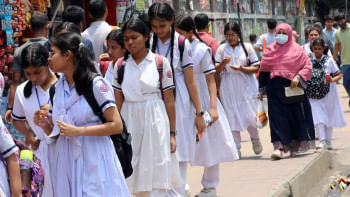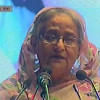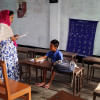Will the primary schools in Bangladesh remain neglected?

Despite many calls to address the dismal quality of primary education in the country, we are disheartened to see that the sector remains a victim of neglect. As evidence, the state of progress of the Fourth Primary Education Development Programme (PEDP-4), a project to improve the conditions of primary schools, is quite fitting. Even after a two-year deadline extension, which ends in June 2025, two-thirds of the project's components were incomplete till May this year. Six years since its launch, the progress of physical work stood at 62 percent till September. Suffice to say, if we continue to fail our children in this manner, a whole generation will be deprived of fundamental resources that are crucial for their development.
Initiated in July 2018, the Tk 38,291-crore project aims to recruit 61,000 new teachers, train 1.4 lakh current teachers, build 50,000 classrooms, 10,500 rooms for headteachers, 58,000 WASH (water, sanitation and hygiene) blocks, and renovate 42,000 primary schools. Indeed, these are major bottlenecks that primary schools have been afflicted with. Classrooms continue to be overcrowded in hundreds of schools, and poor sanitation facilities is the norm, threatening the health and well-being of children. The PEDP-4 has been designed to resolve many of these issues, but the sheer mismanagement of the project is hindering the improvement process.
Officials have pointed to a number of factors for this delay: the political turmoil over the last few months, for which implementation was almost suspended; Covid, due to which less than 10 percent progress was made in 2020 and 2021; and currently, the need for opinions from the Planning Commission and Economic Relations Division regarding revisions to certain components of the project. All these issues may well be valid, but they can't justify why the authorities managed to only implement one-third of the components after so many years. This points to faults in the implementation process itself, which must be rectified.
According to the National Student Assessment, published in August 2023, 61 percent of third-graders and 70 percent of fifth-graders in the country don't have the maths proficiency appropriate for their grades; similarly concerning figures were reported for Bangla. This is the state of our primary education. While the previous government might have neglected this project, the chief adviser, while addressing the 79th session of the UN General Assembly, said the interim government is prioritising education and health sectors over grandiose infrastructure development, to ensure that the child of a farmer or worker can scale the highest in society. If the government truly wants to achieve this reality—which requires a long, arduous journey, as evidenced by the statistics—swift implementation of this project will be a massive step forward.


 For all latest news, follow The Daily Star's Google News channel.
For all latest news, follow The Daily Star's Google News channel. 










Comments